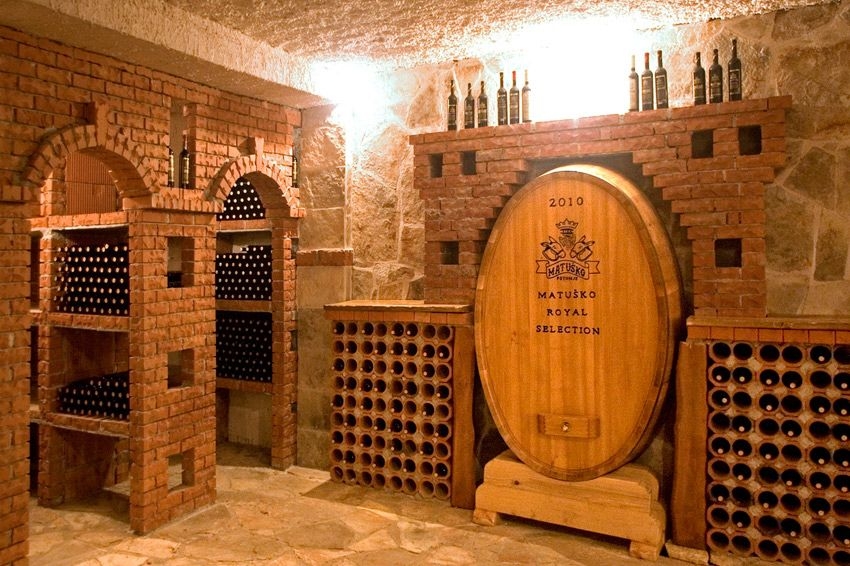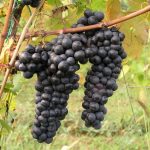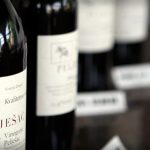Pelješac peninsula winemaker Mato Violić Matuško is the first domestic winemaker who managed to export a significant amount of expensive wines to China and received advance payment for it. The export is Royal Dingač, whose winery price is 33 euro per bottle
Interest in Matuško Royal Dingač was shown a year ago by Chen Feng, main manager of the Chinese corporation HNA Tourism Group, the owners of Radisson Blu Resort & Spa Sun Gardens, formerly the Dubrovnik Sun Gardens, Jutarnji List reported on February 19, 2017.
“They drank my wines in a Dubrovnik restaurant and liked them. The owners of the restaurant told me he only orders Royal Dingač. In the end the manager wanted to meet me. Over a year ago I hosted them in my winery, including one of the group owners. In the end he said: ‘I want to buy your wine!’ After that his associated began negotiations, or operational arrangements, on exporting my wine to China. It all resulted in an advance payment for 8.000 bottles of Matuško Royal Dingač,” explained Mato Violić Matuško, owner of Matuško Wine from Potomje on Pelješac.
8.000 bottles of Royal Dingač is on its way to China at the moment. “I have no idea where they will use it. I am certain it won’t go on store shelves. My estimate is, Royal Dingač will be offered in one of their hotel restaurants. This is the first shipment and I expect more,” said Matuško.
Matuško feels there are others exporting to China, but it is either small amounts or wines with a low price. “Such expensive wine I am certain no one in the region exports. Wine above 30 euro in the world can only be produced by a small number of winemakers. This production price is several times higher in restaurants. We’re talking of the higher end price of world wines. Archive wines are different, they have a high price, but very limited quantity,” explained Matuško.
Mato Violić Matuško was awarded a gold medal last year at the prestigious rating Challenge International du Vin in Bordeaux for Dingač Royal 2007 and Dingač Reserve 2008 and a silver medal for Dingač 2011.
“It was the first time I sent samples for a rating to what I feel is one of the best global rating competitions in wine and received international confirmation of the quality of my wines. I can say I am not surprised as these wines were confirmed by the market in the market niche above 20 euro, which not many from Croatia have achieved,” said Matuško.
This largest French wine rating has been ongoing for 39 years, with 5.000 wines from 38 nations. The rating also confirms the application of strict technical standards in production and the high quality of wine, according to the ISO 9001 standard.
Matuško says he attended a wine fair in Shanghai several years ago.
“The Chinese market is huge. Everyone knows that. Also, we know there are many rich people there. Wine is becoming fashion in those circles. But the market also recognises only global brands, whether its wine, textile, cars, furniture… To push your products into those circles, you either have to be a brand name or from a world renowned destination. For wine it is certainly France, for cars Germany. My winery and Croatian wines are a mystery for the Chinese. So this is truly pioneer work, in wines of higher price. Extremely cheap products have a market there, as the population is high. The average and unknown brands have a tough time on the Chinese market,” Said Mato Violić.
Besides the Croatian market, Matuško markets his wines in the region and a line of EU countries. His distributor is in Austria, from where the wine is sold to other countries of the EU. A year ago he saw export to the UK rise, as told to him by a London wine shops owner. He began buying Matuško wines carefully, but now he is a significant buyer.
“My wines are very expensive and I am aware of this. This is not helped by the fact that, although we deserve it, we are not known as a wine nation. Our winemakers are also no recognised in the world. Thanks to tourism we are becoming more recognised as a destination with good wines. Croatia is an interesting wine destination beginning with Slavonia, through Istria to Dalmatia. We are not yet positioned as a wine nation, but that will come. It’s a long-term process which needs guidance. But I am certain it will happen. Croatian wines can stand in quality besides wines from renowned wine nations. Croatia has excellent wines and they can compete anywhere,” feels the Pelješac winemaker.
Mato Violić Matuško is one of the pioneers of connecting wine production and tourism. Annually his cellar is visited by over 50 thousand guests who buy tickets.
“We have growth every year. Ten of our employees take care of that. They lead groups of tourists through the cellar, enable them to taste and buy our products in the winery. It’s a very important segment in our business, as we have ensured high solvency. Even in the worst of years, when the payments of other businesses, wine distributors and caterers were late or messy. Lately the situation is better in that regard,” pointed out Mato Violić.
Matuško began in 1998 with a small cellar and believed he can sell several hundred litres of wine. Travelling the world and touring wine destinations he saw the way wine is presented is very important for this tourism product. “A tourist, or traveller, likes to see where wine is made, who makes it and how it used to be done. As Pelješac is a tourism paradise, I began developing it. I worked with agencies and things got moving. My surplus money was invested into a larger cellar until we reached 2.000 square metres of underground cellar space. It’s also a production cellar with over 600 wine filled barrique barrels. This is tangible for tourists, they like to see that,” said Matuško.
Another cellar expansion was finished this year where they will move white wines. “As a winery we are recognised as red wine producers. Lately we have been investing into white wines. We bought a vineyard in Ilok in Slavonia, constantly planting new vines and working with our subcontractors, controlling the wine production. I took the road I was familiar with. When I completed my studies at eh Faculty of agronomics, my first job was in Dingač Winery. Later I was the chief oenologist for the winery. So I decided to produce wine I knew most about,” said Matuško.
Wine growing and winemaking are, according to him, completely different jobs. They are connected, as grapes are made into wine. Fact is, great wines are made in the vineyard, but the jobs are completely different. “To get good wine, you have to have superior grapes, but if you don’t know the secrets of wine production, then you can ruin the best grapes. I did not ask for concession or subsidies. Everything we did or took on we did with the money we earned. So our property is our own or our company’s. I have no loans,” explained Mato Violić.
As for the market, Matuško says they have no issues with selling his expensive wines as the consumers in that segment recognised him and he has positioned well. Speaking of wine sales in general, Matuško says the crisis is felt in his medium priced wines. That segment has the most producers and the middle class in Croatia is in problems.
Matuško Wines employ around 30 people in season, with several families tied to the company, working in the vineyards. There is also a line of permanent subcontractors and companies tied to the company business. They have to catering locations, one is a seasonal restaurant by the sea in the Dingač area, the second is a wine bar in the core of Dubrovnik and is open year-round. They only sell their own wines, with over 20 labels and two types of sparkling wines.
“So we have catering in the section we can completely oversee and market our own wines. I tried something similar in Zagreb while my son was in college, but we gave as he completed the Faculty of Agronomics and returned to take part of the business.”
At this moment on Pelješac there are seven or eight very respected cellars and a large number of smaller wine shops in small wineries and cellar which host tourists. Mato Violić Matuško is president of the Pelješac Wine Roads association which organizes several manifestations with open cellars. HE says the opening of a line of new cellars has not hurt him at all.
“Just the contrary. Our destination has developed and we have become known for it. We all benefit being positioned as a wine destination. With only a few of us we certainly would not succeed in that. This was we develop and grow. We only have to raise the quality of wine and all will be well. It’s a slow process, but a positive story is developing. We don’t brag much and are firmly on the ground, but advancing quickly and surely. I take care of Pelješac winemakers,” said Mato Violić Matuško.











